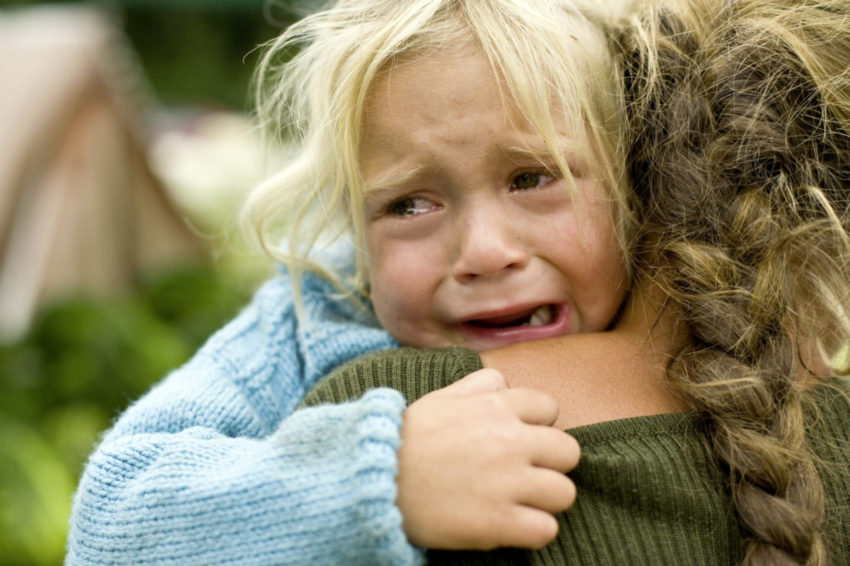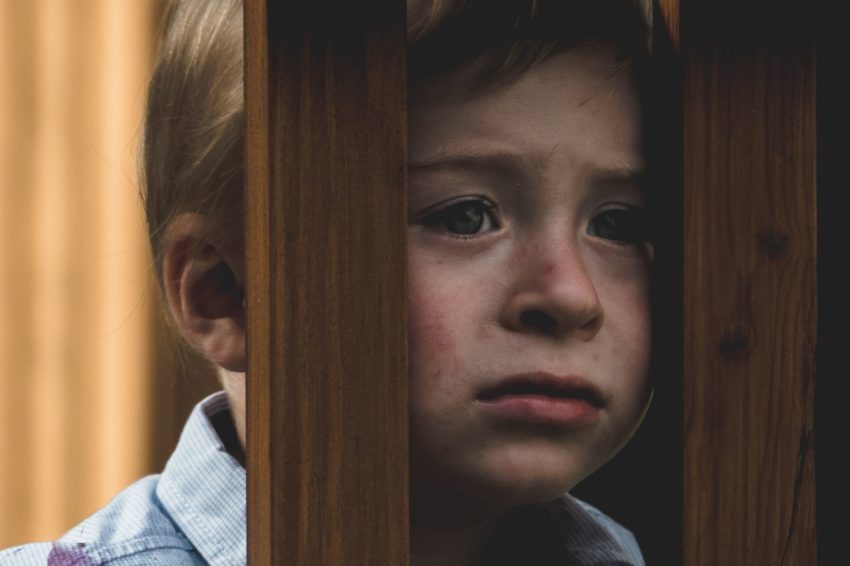I would like to actively fight against parent-child alienation.
What can I do? You can support the campaign by making a donation . Store the campaign motifs in your social media profiles and draw the attention of other people in your environment to the topic. You will soon find templates here. For more ways to get involved, visit our Support and Get . Also follow us on Facebook and subscribe to our newsletter . We will always give you ways to become active yourself. Your own creative ideas are also welcome, as long as they support the goals of the campaign. Feel free to let us know if you are planning or have done something of your own, maybe this will encourage others to imitate or participate and we can report about it.
What is the difference between PAS and (induced) parent-child alienation?
They are two terms that ultimately describe the same thing. Parental alienation is the English term that was previously supplemented by the addition "syndrome" (S). In the meantime, however, there is widespread agreement that parent-child alienation is not a disease and is therefore only spoken of in English as PA = Parental Alienation. The German suffix "induced" indicates that in the case of parent-child alienation an active influence on the child takes place. You can development in detail on our Development page.
Is there always conscious alienation?
Alienation can, but does not have to, take place consciously. There are parents who unknowingly and perhaps even unintentionally alienate their children. In doing so, they develop alienating behaviors that affect the child and can lead to a strain on the relationship with the alienating parent and ultimately to a loss of contact.
Only mothers alienate?
Parent-child alienation can come from any parent, regardless of gender. Although fathers are more often affected by parent-child alienation due to the existing distribution of roles, every case is one too many. Parent-child alienation cannot be recognized by gender, but by behavior towards the children and the fatal effects it has on them.
Is parental alienation a disease?
Parental alienation is not a disease but a variety of behaviors that have corresponding effects on the children involved and also the alienated parents. These can then also result in clinical pictures such as personality disorders, depression, dissociation and many more. With regard to the child, a corresponding diagnostic classification can be found in the ICD 11 of the WHO (World Health Organization) under the diagnosis code QE 52.0 "Caregiver-child relationship problem".
What's so bad about the child losing a parent?
It still has the second? Of course, a child can survive alone with its father or mother. But it doesn't actually "lose" its father or mother in the case of parent-child alienation, because the father or mother is still alive. However, the relationship and with it a part of the child's identity is lost. It is the path that leads to alienation that is harmful to the child: blaming, blaming, influencing. The child grows up knowing that he/she has a bad father/mother who is unable to take care of and does not love the child.
How does it affect children when they are alienated from a parent?
This varies greatly as children have different coping strategies. Some children form an even closer bond with the remaining parent and cannot break away. Others take refuge in their own world, others become aggressive towards the alienating parent (usually in adolescence). Still others show a strongly adapted behavior towards the caring parent. Many alienated children later develop attachment disorders or depression. This goes from abnormalities to psychosis.
How does it affect the parent when he or she is alienated from their own child?
This differs depending on the processing options, resilience, bonds. Surprisingly, it often has little to do with whether the parents have been in a long-term relationship or whether they have ever lived together as a family. The stressful factor is the loss of the relationship with one's own child. For many parents, with such an emotional catastrophe for many years, there is only one topic. As a result, friends are rare and contact with family is reduced. Many parents become depressed or turn to alcohol. Some stand out due to long-term sick leave, some lose their job. Through years of proceedings in the family court, they also have considerable financial losses. Many find themselves in a downward spiral from which they cannot escape. Self-help and possibly also therapeutic support helps many estranged parents to stabilize themselves emotionally in such a situation. But there remain scars in the soul that shape a lifetime.
Why do parents alienate their child?
There can be many reasons for this. Many parents are afraid of having to "share" their child, losing the child's love, or still having to meet the ex-partner. Unfortunately, many also have feelings of revenge, hatred and other negative emotions towards their ex-partner, which are passed on to the child. Trauma and psychological disorders are also common causes of alienating behavior.
Is every loss of contact parent-child alienation?
No, because there can also be reasons that other circumstances have led to alienation.
Here are some examples: · The child's rejection has a legitimate reason, such as
B. Violence, abuse or neglect. · A parent himself breaks off contact with the child after a separation.
· Parents and children “grow apart”, but can still tell each other about positive and negative experiences.
The child has never had a relationship with the rejected parent (e.g. separation and loss of contact during pregnancy)
In these cases one does not speak of (induced) parent-child alienation. For more see " What is parent-child alienation ?"
Why is the father "missing"?
Millions of people didn't have one. After the war, millions of children had to grow up without a father. The difference: he was dead or missing. For the mother and other relatives there was no reason to speak badly of him. The children were able to keep their fathers in positive memory and were often supported by their mother and family. However, it was not easy for the children. On the other hand, if the father is still alive and is badmouthed towards the child, this is a significant psychological burden for the child. With the rejection of the father, it must always also reject a part of its own identity. This leads to massive mental stress on the children. Research has shown that losing contact with a living parent has far more serious effects on children than when a parent dies.
Is alienation from mothers worse than from fathers?
Mothers have a higher priority in caring for children in most societies. When they become alienated, they often feel doubly punished and more reluctant to talk about it publicly. “Bad” for the children is the loss of both the father and the mother. There are no differences here.
Are there differences of alienating mothers or fathers?
Mothers and fathers often have different conditions that can promote parent-child alienation, e.g. the father owns the house, the mother moves out after the separation, the father can offer more financially, or: the mother has more access to the child and his living environment. Practice shows that men and women can negatively influence, manipulate and alienate. It must not be accepted or tolerated under any circumstances, because in any case it is psychological abuse of the children.
Doesn't alienation inevitably arise when parents separate?
no Many parents manage to keep both parents for the child and feel that the participation of the other and his family is a gain for their child. It is not the separation that alienates, but the behavior of one or both parents.
How can parent-child alienation be counteracted?
People close to the family should keep a watchful eye and support children and parents. If one suspects alienating behavior, one should not remain silent, but the parents should be spoken to about it (or would you remain silent if a child was beaten? Parental alienation is also violence against children). Specialists who have to do with the family due to the parental separation must recognize early signs of incipient alienation in order to be able to intervene in good time to protect the children. Often the mother or father simply needs support in coping with their negative feelings. It is important to counteract this in good time and not to wait too long. Time often creates facts that are difficult to undo later if children are exposed to alienating behavior for too long. While in mild cases it can often be sufficient to support parents with counseling, stronger measures are needed as the intensity of the alienation increases. This can go as far as the withdrawal of custody, being taken into care and/or moving to the formerly rejected parent. Internationally, there are now numerous intervention programs that have a high chance of success, so that contact can be restored even if contact is broken off over a longer period of time. By then, alienated children have usually suffered severe trauma from the alienation, which is why early intervention is still the best way to relieve and protect children.
Does parent-child alienation really have such bad consequences?
Yes. However, the consequences for individuals are difficult to assess. It is not only the actual, visible consequences of the “loss” of father or mother that are bad, but also the “reasons” that led to it. Consequences often only become clear later, for example as a “personality disorder”. Parent-child alienation is therefore rightly also categorized as a form of psychological abuse of the child, from which children must be protected.
Is it always a parent that alienates?
Unfortunately not. Alienating parents have parents themselves, siblings, friends who can fuel the situation and cut ties. The behavior that is shown towards the child is always to be judged. It is also possible for both parents to exhibit alienating behavior towards their children.
My child really doesn't want to see their father anymore, what should I do?
Why does the child not want to see his father? Is there a reason for this? Can you talk to the child? It is often helpful for the father/mother to take on tasks with the child, for example accompanying them to the doctor, to events, or supporting them at school. Grandparents or other relatives can often serve as bridges. It is also often the case that children, due to an inner conflict of loyalty, do not tell them what they actually mean, perhaps just so as not to disappoint them. Here it is important to take a close look, to understand the reasons for the rejection and, if possible, to initiate healing processes in the family. Everyone involved, including the father, should be involved. It is almost always possible to find a common path with those involved, which keeps the child in contact with both parents.
Can parent-child alienation be "repaired"?
When the anger has subsided, the parents have come to terms with their separation and can take on a new perspective, a rapprochement is possible at any time. It is never too late for the child. The only question is: what damage has already been caused by parent-child alienation?
How do you tell when a child is being alienated?
Usually because the child no longer mentions their father or mother or only speaks badly of a parent. This is not malicious intent, but a coping strategy on the part of the child. This makes the loss easier for the child in the moment and avoids conflict with the caring parent, but is detrimental in the long run because the child has to suppress his actual feelings and needs.
Why not just ask the child if it wants to go to mom or dad?
In severe separation conflicts, children are often influenced, put under pressure and manipulated. What they say is often not what they need or actually want. The question of whether the child prefers to go to mum or dad would put children under a great deal of psychological pressure and thus practically burden them with the decision. In addition, especially in advanced cases of parent-child alienation, the children usually only reflect the perspective of the alienating parent. What the child says in such situations is usually not indicative of their relationship with mom or dad, but merely the level of influence, manipulation, and alienation by the alienating parent.
Aren't the employees of the youth welfare office and family judges not trained to prevent parent-child alienation?
Employees of the youth welfare office or the independent organizations often do not have a focused view of parent-child alienation or do not have the necessary training. The first signs, such as bad-mouthing, blaming or preventing contact due to illness, visits to the doctor or other obligations, are often recognized late or not at all. Proceedings in family courts are often very lengthy and family judges have no mandatory training to recognize parent-child alienation. Parent-child alienation is therefore often not recognized by professionals or much too late, and then there is often helplessness as to how to deal with it. Far too often, parent-child alienation is still accepted as a “necessary evil” with the argument that “the child needs to rest”. This overlooks the fact that the child only comes to rest when it is in an environment that perceives the needs of the child and is also tolerant of attachment towards the other parent.
Can one speak of parent-child alienation even if there is contact with both parents?
Yes, because parent-child alienation is an evolving process.
Breaking off contact is therefore terminal parent-child alienation. It is important to pay attention to alienating behavior in good time. The top 17 alienating behaviors are: 1. Badmouthing
2. Reducing contact
3. Disrupting communication
4. Preventing symbolic communication
5. Withdrawing love
6. Telling the child the other parent is dangerous
7. Forcing the child to choose
8. Telling the child that the other parent wouldn't love them anymore
9. Making the child confide in adult concerns
10. Forcing the child to reject the other parent
11. Encouraging the child to spy on the other parent
12. Asking the child to keep secrets the other parent
13. Calling the other parent by their first name
14. Calling a step-parent "Mom" or "Dad" and encouraging the child to do the same
15. Withholding medical, educational, or other important information, the name of the
other parent on documents 16. Changing the child's name to reduce the connection to the other parent
17. Cultivating dependencies and undermining the other parent's authority
These can be read in here Further information can also be found here
Why isn't politics doing anything about parent-child alienation?
A good question to which we don't have an answer either. In the course of the campaign, however, we will ask the politicians responsible exactly this question and also publish the answers, also if no answer was given. Psychological child abuse cannot be ended by remaining silent or sitting it out, but only by committed action. This too is an active implementation of children's rights, which does not even require an amendment to the Basic Law.
Why is the campaign targeting the year 2023?
Parents-child alienation has so far been politically ignored, those responsible close their eyes to the children and keep their eyes in idle. As part of our petition, we address very specific demands on politics, which must be done to put an end to parent-child alienation. Every day is one day too much - realistically, we also recognize that political processes need time. However, we also assume that with determined political will to protect children from psychological abuse of parent-child alienation, can be reduced and must be in the interests of the children. Or to express it differently: we don't want to lose time anymore! We will measure the politically responsible and remind you again and again.




